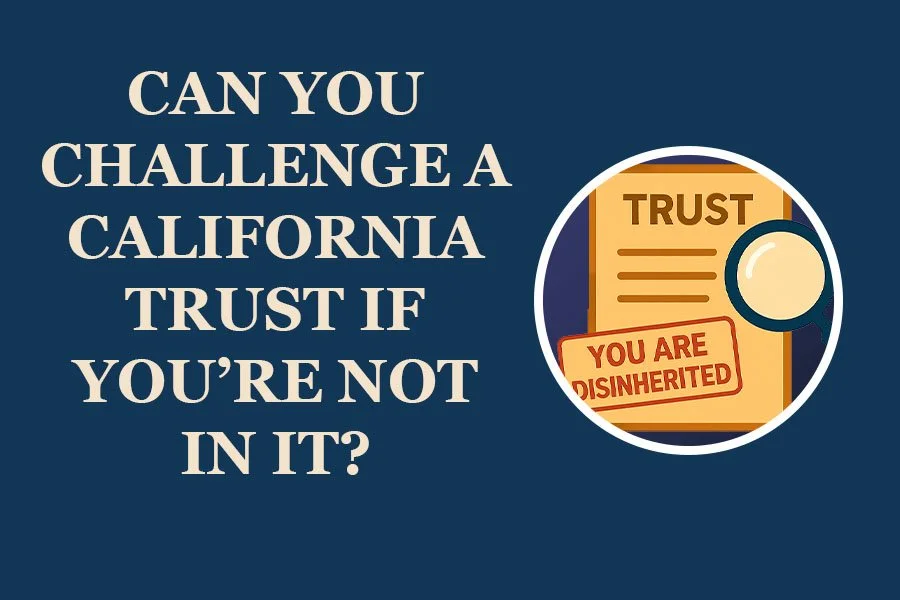67% of Americans Have No Estate Plan!?
According to a survey conducted by the senior living referral service, Caring.com, only about 33% of Americans have any sort of estate planning documents in place. That means 67% of the population is leaving what happens to their estate up to whatever the laws in their state dictate. They're leaving what happens up to the government, rather than having a say in the matter. Even though covid has been a wake-up call for estate planning, the overwhelming majority of Americans are still leaving things up to others to figure out. That same survey also broke down the top 4 reasons people gave for not having these documents in place yet.
What Are You Waiting For?
To begin, 40% of participants said they just hadn't gotten around to doing some estate planning yet, to which we ask, what are you waiting for?
Death and emergency situations don't wait and aren't scheduled in advance. No time is going to feel like the best time or even a comfortable time to plan - but the longer you wait, the more you are rolling the dice on "if" you will be able to do anything before it's too late. Unfortunately, we have had clients pass away in between our initial meeting and signing documents. Life happens. Don't be caught off-guard.
A saying from one of attorney Andrew Bethel’s law school professors appears relevant here, "Nobody has all the time, but everybody has enough time." This holds true in estate planning as it did when studying for the bar exam.
Not Enough Assets to Pass on
Next, the survey found 33% didn't think they had enough assets to pass on in the first place. We have discussed this before; estate planning is not only for the wealthy and is not simply signing a bunch of documents a lawyer handed to you. Estate planning more broadly refers to actively participating in the disposition of our various assets - who gets what of our things. To that end, even if you only have a little bit of money in the bank and some personal items, actively deciding who is to receive what is planning one's estate. This includes setting pay-on-death designations for bank accounts, designating beneficiaries on retirement accounts and life insurance policies, to penning a writing as to who your heirs are and how much everyone is going to get - a last will and testament.
Additionally, while we know not everyone owns a home, many people do. Real property is an important tool for creating and maintaining generational wealth, which is something we stress with our clients as being perhaps the most important aspect of planning one's estate: generational wealth.
Finally, no planning can often lead to higher expenses and fees for the family in the long run, meaning no planning now, equals a small estate to pass on later.
Cost to Set Up an Estate Plan
Moving on, 13% said estate planning is too costly. Look no further than our post on the true cost of probate to get an idea as to how much can, and often will be, taken off the top of your estate should you do little to know planning. Meeting with an estate planning attorney and setting up a complete estate plan - that is one built around the revocable living trust - will often cost only a fraction compared to the fees and expenses associated with routes such as probate. There is a general consensus that attorney fees are always substantial. However, if you want to see substantial attorney fees, watch our video on the cost of probate. truly some scary fees that are non-negotiable since they are set by law no matter what attorney you go to.
Don’t Know How to Get Started
Lastly, 12% of participants said they didn't know how to get a will. We plan to do this more in depth in a standalone post soon, but for now, we're in school so grab a paper and pen. Write, "I, [your name], intend for this document to be my last will and testament," then indicate your marital status and whether or not you have any children, specifically listing everyone's names.
Next, write your distribution. For example, "equal among my children," or that you leave your house, located at your address, to your daughter and your financial assets to your son.
Then, you will appoint an executor - the person whose job it will be to gather your assets and distribute them. This includes closing down bank accounts and selling or transferring real property.
If you have minor children, then you can nominate a guardian for them here as well.
Lastly, grab 2 neighbors or friends - people NOT named in the document - and all 3 of you sign the document, with the 2 friends signing as witnesses and writing their name and address next to their signature. They don't need to know the content, only that the document is your last will and testament.
After that, you're done. Congratulations, you have now successfully created your last will and testament and have done some estate planning. There are also many free fill in the blank templates you can find online, but we had you do it yourself to illustrate how easy the process of starting to plan your estate can be.
With all that, keep in mind that there are many other advantages & tools to utilize when planning your estate, but we mainly wanted to address the common reasons people give for not having done any estate planning in the first place.
BETHEL LAW CORPORATION
ESTATE PLANNING | ELDER LAW | BUSINESS PLANNING
CLICK HERE OR CALL US AT 909-307-6282 TO SCHEDULE A FREE CONSULTATION.




